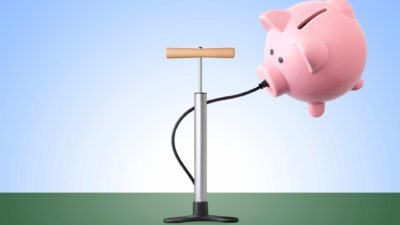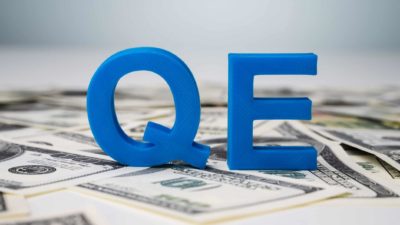The S&P/ASX 200 Index (ASX: XJO) is having a fabulous time of late, if the numbers are anything to go by.
Today, the ASX 200 is up 0.70% to 6,340 points, improving on yesterday's 8-month high. The index is up 4.5% over the past week, 3.35% over the past month, and 16% over the past 6 months. The catalysts for this enjoyable rise? As we outlined this morning, many market commentators are pointing to the combination of the Reserve Bank of Australia's (RBA) interest rate cut last week (to a new record low of 0.1%), with the more-decisive-than-initially-hoped outcome of last week's presidential election.
On the latter, we discussed how various commentators and fund managers are pointing to the 'nirvana' outcome of a Democrat in the White House, in combination with divided Democrat/Republican control of congress (America's parliament). As Magellan Financial Group Ltd's (ASX: MFG) Hamish Douglass told us in the Australian Financial Review (AFR), this should ensure political stability, whilst also providing a handbrake on the major reform that Democratic president-elect Joe Biden promised in his campaign (which includes large tax rises for corporations).
However, it's this outcome that I'd like to discuss today.
US Senate elections could move the ASX
See, the US elections aren't actually over. Well, the presidential election is. But not the concurrent US senate elections. Yes, most of the Senate elections (the third of the Senate seats that were up for re-election anyway) are over. But not all of them. The Senate elections resulted in the Republican Party winning or holding 50 seats, and the Democrats holding 48. Yet there are 100 seats in the chamber.
Under a quirk of America's patchwork electoral laws, the state of Georgia only allows direct re-election if a candidate wins more than 50% of the vote. And, according to separate reporting in the AFR, in the elections last week, no candidate crossed this threshold in the 2 Georgia senate seats that were up for re-election. That means that Georgia will hold a runoff election for these 2 senate seats in January. These will be both 2 horse races with a Democratic and a Republican candidate.
Doing some quick maths, if Democrats win both seats up for re-election, both parties will have 50 senate seats. Under the US constitution, the vice-president breaks a 50-50 tie. And as a result of the presidential election last week, Democrat Kamala Harris will become vice-president for 4 years on 20 January 2021, giving Democrats control of the Senate for at least 2 years under this scenario.
If this were to play out, suddenly this 'nirvana' for investors will vanish, and leave the Democrats in theoretical control of both branches of government. So make sure you watch these elections on 5 January next year. If both of these races go to the Democrats, we could well see a shift in sentiment from the market that's reportedly already priced in 2 years of divided American government.








